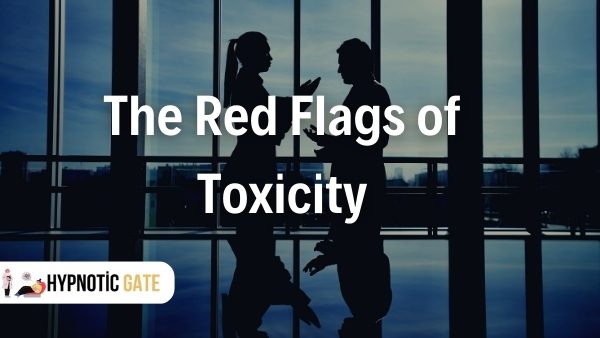There are toxic people all around us, which may have a detrimental effect on our lives. To maintain our mental health and well-being, it is crucial to identify and stay away from toxic people. In this post, we’ll talk about the warning signs of toxicity and how to recognize a toxic person a mile off.
We’ll also review some strategies for dealing with toxic people and safeguarding yourself from their negative actions.
What is the Definition of Toxic People, and How Do They Affect Others?

Toxicity is a term that refers to a group of detrimental habits, attitudes, and acts that have a negative influence on the lives of others. Toxic people may display various characteristics that make them tough to deal with. What are they? Manipulation, narcissism, bullying, lack of empathy, and other behaviors are characteristics. It is critical to recognize that toxic individuals may have a negative influence on our mental health and well-being, causing tension, worry, and even despair.
What Practical Ways to Protect Yourself From Toxic People in the Workplace When You Can’t Avoid Them Altogether?
It is not always easy to avoid toxic people in the workplace. There are, however, things you may do to safeguard yourself. Setting boundaries, limiting interactions with them, getting help from coworkers or a boss, and adopting self-care skills such as mindfulness or exercise to manage stress and anxiety are some examples.
Suggestions:
- What Are The Warning Signs of A Toxic Person, And How Can I Identify Them?
- How to Protect Yourself From a Toxic Person?
Red Flags of Toxicity
How can I identify and address toxic behavior in myself to prevent from becoming a toxic person?
To identify toxic people, you need to be aware of the red flags of toxicity. These may include:
- Manipulation: Toxic individuals often manipulate others to get what they want, using emotional blackmail, guilt, or threats.
- Criticism: Toxic people are quick to criticize and judge others, often in a hurtful and degrading way.
- Narcissism: Toxic people have an inflated sense of self-importance and may lack empathy or concern for others.
- Anger: Toxic people may have a quick temper, be easily provoked, and lash out at others.
- Drama: Toxic people often thrive on drama, creating conflict and chaos wherever they go.
- Controlling behavior: Toxic people may try to control others by making decisions for them or dictating how they should behave.
Being self-aware and identifying negative patterns of action are critical steps in avoiding becoming a toxic person. Consider how you connect with people and accept accountability for your actions. Get advice from reliable friends or a therapist, and attempt to break bad habits. To establish deeper, healthier relationships, practice empathy and strive to perceive things through the eyes of others.
Techniques to Deal with Toxic People
Dealing with toxic people can be difficult, but there are various tactics you can employ to protect yourself and keep your mental health in check. Among these methods are:
- Hypnosis: Hypnosis is a technique that can help you relax, reduce stress and anxiety, and improve your mental health. It can be especially helpful when dealing with toxic people.
- Emotional Freedom Techniques (EFT): EFT is a form of psychological acupressure that can help you relieve stress and anxiety. It can be effective in dealing with the emotional impact of toxic people.
- Meditation: Meditation is a technique that can help you relax, reduce stress and anxiety, and improve your mental health. It can also help you detach from the drama and negative emotions of toxic people.
- Breathing techniques: Breathing techniques can help you reduce stress and anxiety, calm your mind, and improve your mental health. They can be especially helpful in dealing with the emotional impact of toxic people.
- Cognitive Behavior Therapy (CBT): CBT is a form of psychotherapy that can help you change negative thought patterns and behaviors. It can help deal with the negative impact of toxic people.
- David Burns’ techniques: David Burns is a renowned psychiatrist who has developed several techniques to help people deal with negative emotions and improve their mental health. His techniques can be effective in dealing with the emotional impact of toxic people.
Conclusion
Toxic people can significantly impact our mental health and well-being. Right? To protect ourselves from their damaging actions, it is crucial to identify and stay away from toxic people.
We may safeguard ourselves and preserve our mental health by recognizing the warning signs of poison and employing strategies like hypnosis, EFT, meditation, breathing exercises, CBT, and David Burns’ approaches. Remember that your mental health and well-being are crucial, and you deserve to be around others who are upbeat and encouraging.
